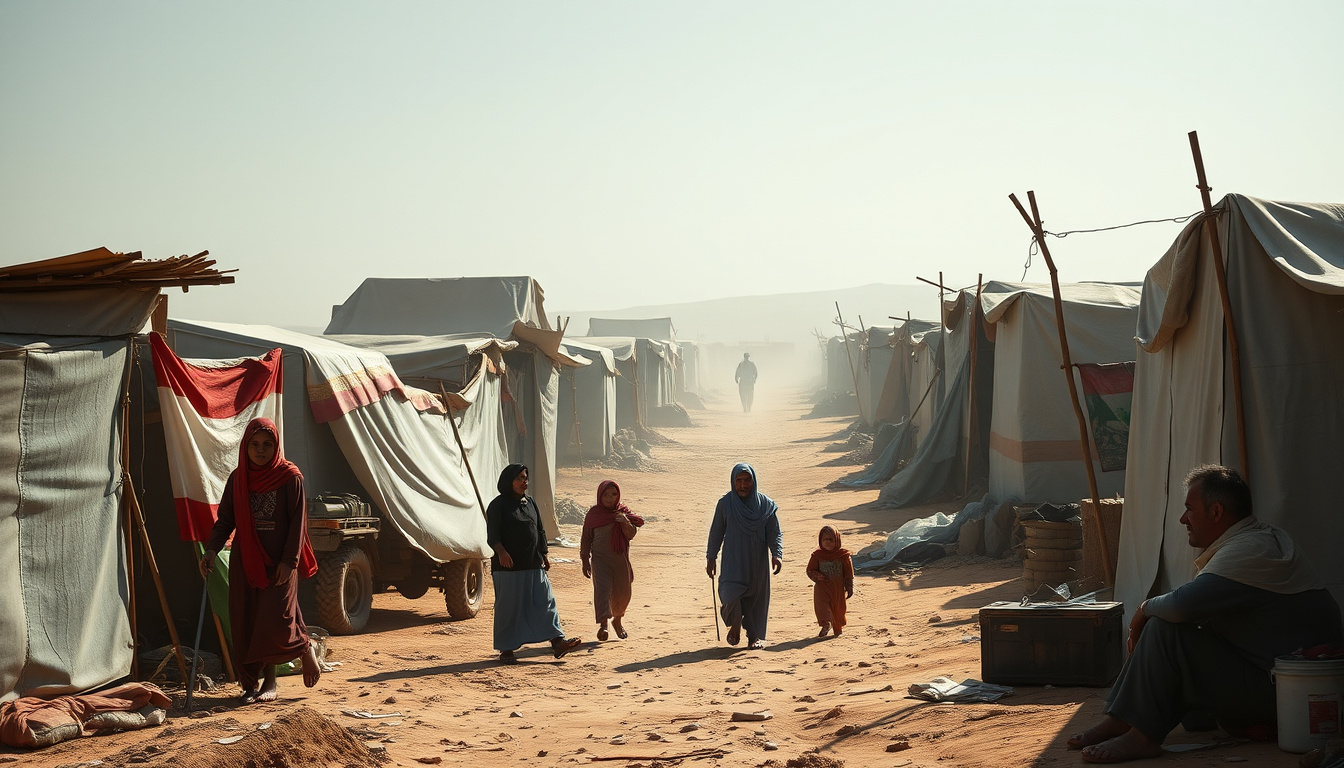In recent months, the escalating conflict in Gaza has forced tens of thousands of Palestinians to flee their homes, seeking refuge in neighboring Egypt.
Among those displaced are individuals like Nael Youssef Abzaanin, who find themselves in a foreign land grappling with grief, uncertainty, and an overwhelming sense of separation from their families still enduring violence at home.
As they arrive with stamped tourist visas, these displaced individuals quickly realize that the path to stability is fraught with numerous challenges.
From facing legal barriers that hinder employment opportunities to navigating the complexities of informal living arrangements, the reality for many Palestinians in Egypt is one of struggle and survival.
This article delves into their narratives, shedding light on their hardships as well as the resilience that defines their community, amidst a backdrop of hope for a brighter future.

Key Takeaways
- Displaced Palestinians in Egypt are struggling to adapt to life with limited legal rights and financial instability.
- Many face significant barriers to accessing education and employment, leading to informal and underpaid work opportunities.
- Despite the hardships, there is a strong sense of resilience and hope within the Palestinian community for a better future.
The Dire Circumstances of Displacement: Challenges Faced by Palestinians in Egypt
The dire circumstances of displacement have profoundly impacted the lives of tens of thousands of Palestinians who sought refuge in Egypt, fleeing the devastating effects of the war in Gaza.
Many, like Nael Youssef Abzaanin, arrive under harrowing conditions with only stamped tourist visas, which provide little in terms of security or stability.
These temporary permits leave them unable to work, open bank accounts, or enroll their children in public schools without the necessary residency permits.
Abzaanin poignantly articulates the emotional toll of separation from his family still residing in Gaza, constantly battling the threat of violence while confined in a precarious situation in Egypt.
Adding to their plight, the banking system in Gaza has collapsed, rendering their ability to receive financial support nearly impossible.
The Egyptian job market is equally challenging, marked by high inflation and stringent legal barriers that restrict foreign employment, forcing many Palestinians into informal jobs that pay below the country’s average wage.
Meanwhile, their children face significant educational disruptions, with access to formal schooling severely limited and informal learning arrangements often the only alternative.
In their shared experiences, other displaced individuals like Qasem Raed Al-Kafarnah and Mai Khader Sammour echo the struggles of familial separation and the mounting emotional burden of resettlement.
Despite these overwhelming obstacles, both the Palestinian community and their Egyptian hosts have exhibited remarkable resilience, holding onto hope for a stable future and the dream of returning home someday.
The Palestinian embassy in Egypt reports that over 115,000 individuals have sought safety, yet the urgent need for improved access to employment and educational opportunities is critical to ensure their long-term well-being.
Resilience Amidst Hardship: The Palestinian Community’s Spirit and Aspirations
Many Palestinians, facing dual challenges of displacement and cultural integration, strive to forge a semblance of normalcy in their new environment.
Organizations and community groups within Egypt have rallied to provide support, establishing networks that offer essential resources such as food, shelter, and advice on navigating the complex bureaucratic landscape.
These collective efforts not only foster a sense of community among the Palestinian diaspora but also facilitate the sharing of information, enabling newcomers to adapt amidst unfamiliar circumstances.
Furthermore, many in the Egyptian community have stepped up, offering solidarity and assistance, demonstrating a shared human spirit that transcends borders.
As these resilient individuals grapple with their circumstances, they also remain intertwined with global conversations about humanitarian support and international advocacy, working tirelessly to highlight their plight and aspirations for peace, stability, and the right to return home.

